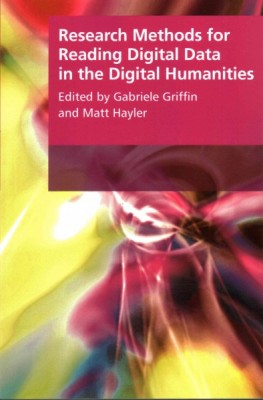| Research Methods for Reading Digital Data in the Digital Humanities Contributor(s): Griffin, Gabriele (Editor), Hayler, Matt (Editor) |
|
 |
ISBN: 147440961X ISBN-13: 9781474409612 Publisher: Edinburgh University Press OUR PRICE: $36.05 Product Type: Paperback - Other Formats Published: February 2016 |
| Additional Information |
| BISAC Categories: - Literary Criticism | English, Irish, Scottish, Welsh - Literary Criticism | Reference - Reference | Research |
| Series: Research Methods for the Arts and Humanities Eup |
| Physical Information: 0.6" H x 6.1" W x 9.2" (0.80 lbs) 256 pages |
| Themes: - Cultural Region - British Isles |
| Descriptions, Reviews, Etc. |
| Publisher Description: The first volume to introduce the techniques and methods of reading digital material for research Digital Humanities has become one of the new domains of academe at the interface of technological development, epistemological change, and methodological concerns. This volume explores how digital material might be read or utilized in research, whether that material is digitally born as fanfiction, for example, mostly is, or transposed from other sources. The volume asks questions such as what happens when text is transformed from printed into digital matter, and how that impacts on the methods we bring to bear on exploring that technologized matter, for example in the case of digital editions. Issues such as how to analyse visual material in digital archives or Twitter feeds, how to engage in data mining, what it means to undertake crowd-sourcing, big data, and what digital network analyses can tell us about online interactions are dealt with. This will give Humanities researchers ideas for doing digitally based research and also suggest ways of engaging with new digital research methods. Key features
|